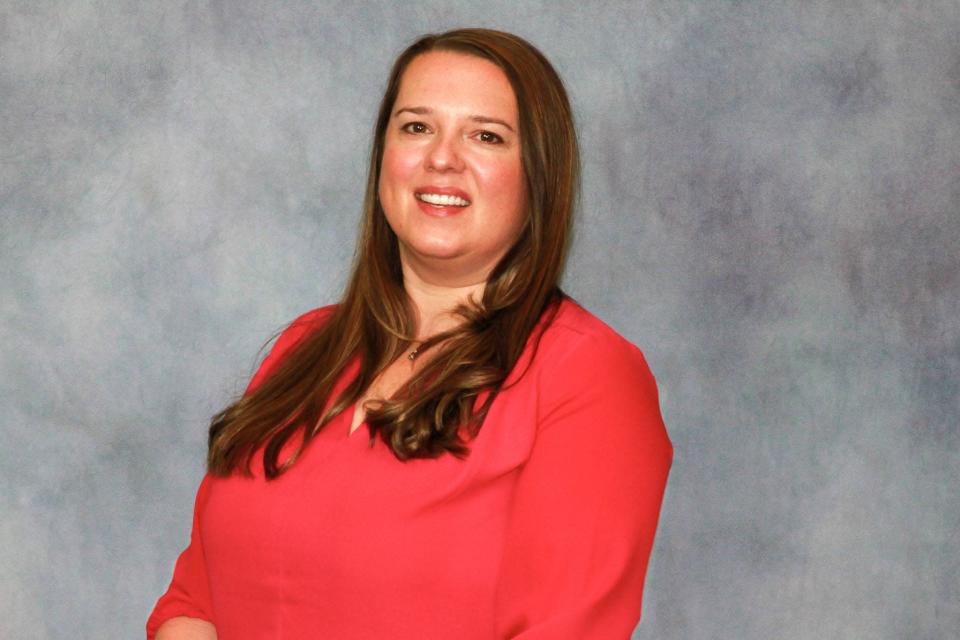
ASHEVILLE – Victoria Reichard is Buncombe County’s first Behavioral Health Manager, and two days into her job, she was meeting with people she was hired to serve.
Reichard started the job Feb. 28, and on March 2 she did a shift with a community paramedics.
One of the people they saw had been the victim of an overdose, Reichard said. The paramedic was doing a follow-up, checking a week after the incident.
Instead of meeting just one person, however, they met two.
“We met their partner,” Reichard said. “She had a hard time but was looking into getting a job on Friday. She was wanting to get back into the community and doing her recovery work. So while we’re going there for one reason, you know, she was the support for the person who had an opioid (overdose).”
Related: Pending vote, Buncombe internal audit director hire is department’s sole full-time employee
The more than four hours she spent in the field were a “highlight,” she said, a chance to see health programs Buncombe works with and they people they serve.
“That gave me a good time to follow up with people and the harm reduction work that they’re doing, a good day to kind of get on the ground.”
Reichard’s role was created in part to establish connection and continuity inside county government’s efforts to address, among other things, addiction and mental health issues.
As advertised in late 2021, the behavioral health manager position is meant to “provide enterprise level planning, coordination and implementation of behavioral health and substance-use disorder initiatives that support the needs of the Buncombe County community while promoting sustainability,” according to online job postings, which listed the job’s salary between about $63,000-$84,000.
Assistant County Manager DK Wesley said the new position grew out of a recognized deficiency inside Buncombe’s Behavioral Health Justice Collaborative, an initiative created through the Justice Resource Advisory Council.
“It became evident that centralized coordination, monitoring and reporting was lacking,” Wesley said in a release on Reichard’s hiring. “It is also necessary to have someone dedicated to supporting this work from a coordination and administrative perspective.”
Handling opioid settlement
JRAC is an advisory body that helps advise Buncombe’s criminal justice and court system policy. The health collaborative is a committee JRAC organized to get numerous entities involved in justice and behavioral health at the same table, according to 2021 JRAC meeting discussions.
“One of the main and most urgent efforts the BHJC will support is the development of a recommended opioid settlement financial plan for board consideration, which will be an extensive effort and include a great deal of partner and community engagement,” Wesley added.
This settlement comes from cases managed by thousands of lawyers against big drug-makers in which numerous N.C. local governments are essentially the plaintiffs. Legal teams are doing this for other states as well.
The money is paid out by drug makers including Johnson & Johnson and Cardinal Health, settlement money for the companies’ damaging roles in the opioid epidemic, which has led to the deaths of more than 16,000 people in North Carolina over the past 20 years.
An estimated $850 million will come to North Carolina, then strategically sent to localities.
Buncombe could receive about $21 million, according to Buncombe Staff Attorney Brandon Freeman, though that number is still evolving.
More: $21 million in opioid settlements: First lump could hit Buncombe County early 2022
The payout itself could happen between April and June, according to Reichard.
She and Buncombe Strategy and Innovations department employee Kathleen Blackeny will help coordinate JRAC, community partners, stakeholders, county departments and experts to find out how the settlement money should be allocated locally.
Then they’ll bring it to Board of Commissioners for approval.
“With behavioral health justice, that is going to be the vehicle moving forward on how we use that money,” Reichard said. “And so right now, we’re meeting with county heads and looking the communities, getting input on what services are effective identifying the gaps that we might want to support.”
Counties are limited in how they can hand out settlement money because of legal agreements, but she said the county already is involved in programs where it can be allocated.
Before joining to Buncombe, Reichard, 39, was in behavioral health management and leadership positions, including at programs working with local schools, medical providers, departments of social services and juvenile justice, and other mental health agencies.
She has a master’s in social work from the University of Maryland, Baltimore with a concentration in management administration and community organization as well as clinical and a specialization in children and families.
Her bachelor’s degree from Elon University is in human services with a focus in criminal justice.
Andrew Jones is Buncombe County government and health care reporter for the Asheville Citizen Times, part of the USA TODAY Network. Reach him at @arjonesreports on Facebook and Twitter, 828-226-6203 or [email protected]. Please help support this type of journalism with a subscription to the Citizen Times.
This article originally appeared on Asheville Citizen Times: Buncombe behavioral health hire to help guide opioid settlement money






